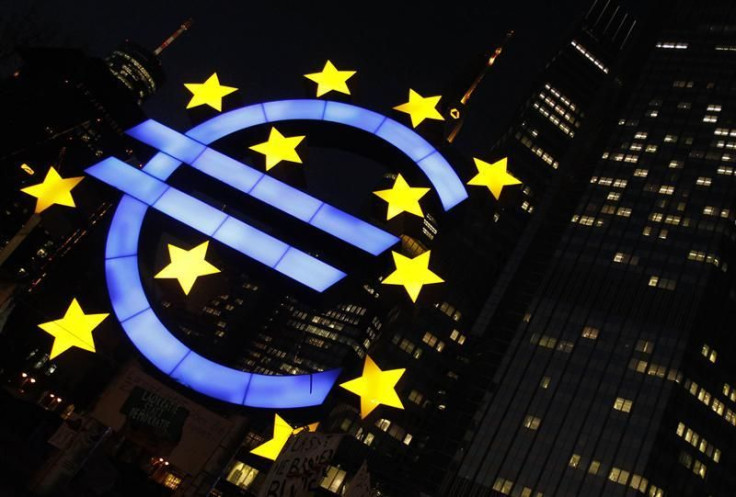Euro Zone Falls Into 'Recession': Markit Report

The euro zone slid back into recession in March as output fell for the second quarter running, reaching a new three-month low, according to Markit's Eurozone PMI Composite Output Index on Thursday.
Combined with fresh data of a weakening economy in China, a key European trading partner, the Markit report that the euro zone was ina recession hammered European stocks. Indexes in Germany and France fell more than 1 percent.
The euro zone economy contracted at a faster rate in March, suggesting that the region has fallen back into recession, with output now having fallen in both the final quarter of last year and the first quarter of 2012, Chris Williamson, chief economist at Markit, said.
The index fell from 49.3 in February to its new low of 48.7 in March, indicating contraction in euro zone business for the second successive month, the conventional definition of a recession.
Manufacturing and service activity in the euro zone reached their lowest levels in three and four months, respectively, but the drop in March was modest, as it was somewhat offset by a slight but slowing rise in German output. Output in Germany and France has been significantly higher than in the periphery nations in the monetary union, with Germany showing a slight increase in output, and France posting only a modest decrease.
Germany and France look to have avoided a return to recession, but only by very narrow margins, Williamson said.
European output has been driven down by a combination of a drop in new business and a decline in new orders. Domestic demand fell and was exacerbated by the ninth consecutive monthly drop in new export orders. The drop in output was accompanied by a drop in employment levels.
Firms are clearly focusing on cost reduction, with employment falling at the fastest rate for two years as inflows of new business continued to deteriorate, reflecting weak demand across the region. Even hiring in Germany has almost ground to a halt, Williamson said.
© Copyright IBTimes 2024. All rights reserved.











